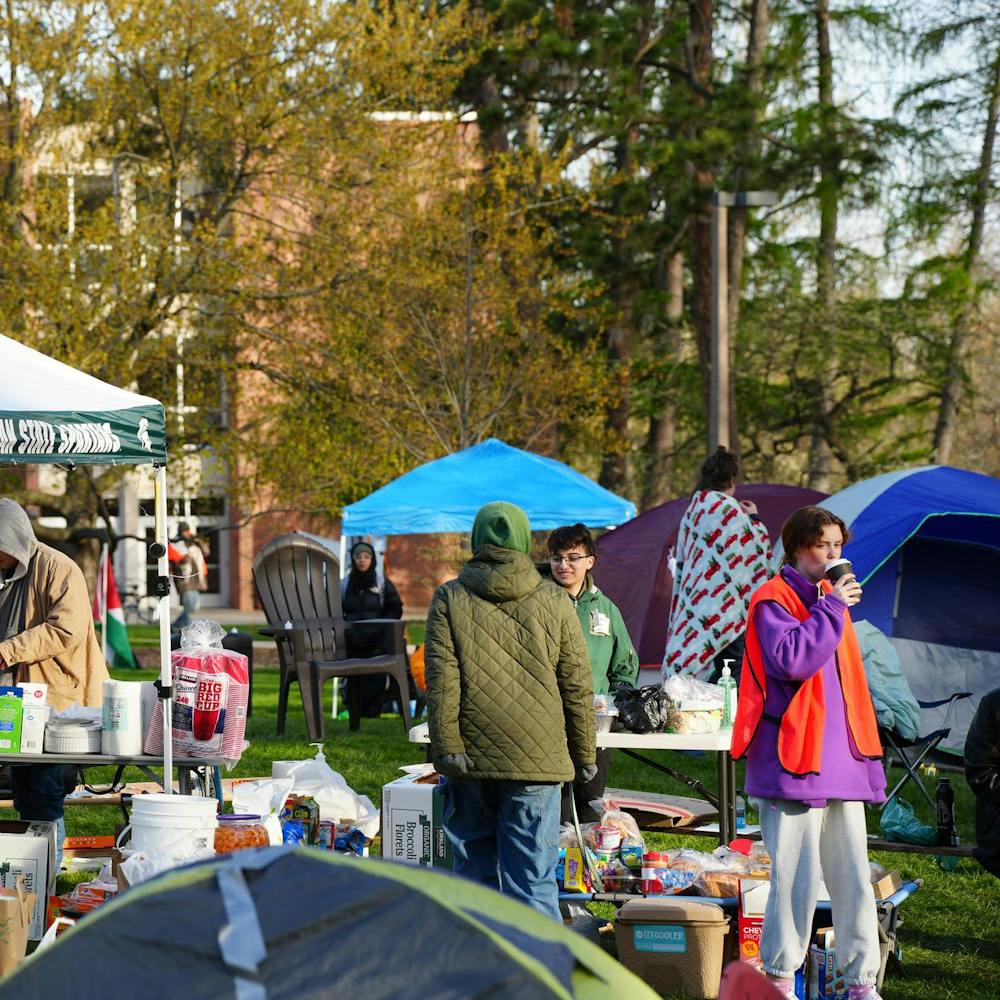Emily McKay sees room for growth in urban farming, and she’s been cultivating her education to start her own plot.
“There are so many opportunities that are popping up,” said the horticulture senior, who volunteers at a local children’s garden. “I’m not worried about finding a job.”
McKay might be in luck, at least locally. Michigan’s food and agriculture business sector contributes an estimated $91 billion to the state’s overall economy, according to an MSU study conducted in 2011.
In the base study performed in 2006, the industry contributed about $60 billion, said Chris Peterson, director of MSU’s Product Center.
“In economic terms, that’s a very significant growth rate, particularly given the challenges our state has had,” Peterson said. “Things might have grown even more significantly (without the recession).”
The increase is in part because of rising income levels and population, he said.
The study’s co-authors found the economic impact of food wholesale and retail increased the most in terms of dollar growth — $13 billion total impact. The impact of farming had the largest percentage growth — $51 billion total impact.
However, retail employment numbers dipped during the recession. Retail combined with food wholesale employment fell by more than 15 percent.
“During a recession, you have a lot more people buying their food right out of the grocery store rather than people going to restaurants,” Peterson said, adding such numbers might rise given the strengthening of the economy.
Mike Beck, president of St. John’s, Mich.-based Uncle John’s Fruit House Winery, said his business has had to deal with increasing fuel prices and the minimum wage paid to workers. Still, there always will be a market for food, he said.
“(Farmers) have a good stable footing (in this economy),” he said. “We can’t eat air.”
Peterson said the future looks bright in terms of future employment for students going into the agricultural field.
McKay said she’s been doing as much as possible prior to graduation to spread the word about community gardening and sustainability.
Although the economic impact study did not capture the impact made in urban farming across the state, Peterson said future research should begin to paint a better picture on how urban and organic farming plays a role in state agriculture.
Support student media!
Please consider donating to The State News and help fund the future of journalism.
Discussion
Share and discuss “Growth in Mich. agriculture business might mean jobs for students” on social media.






